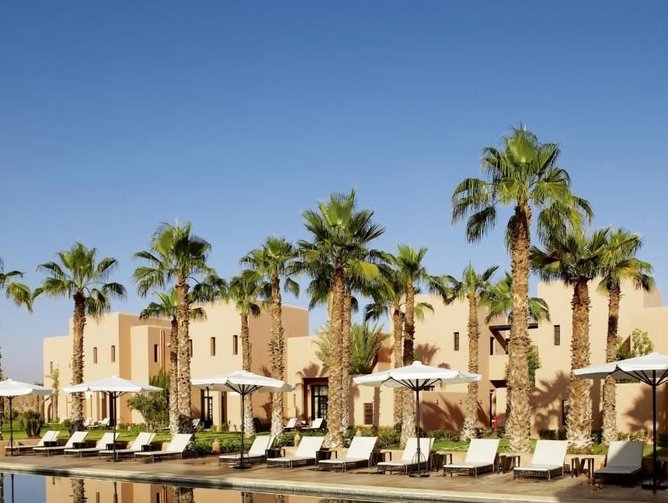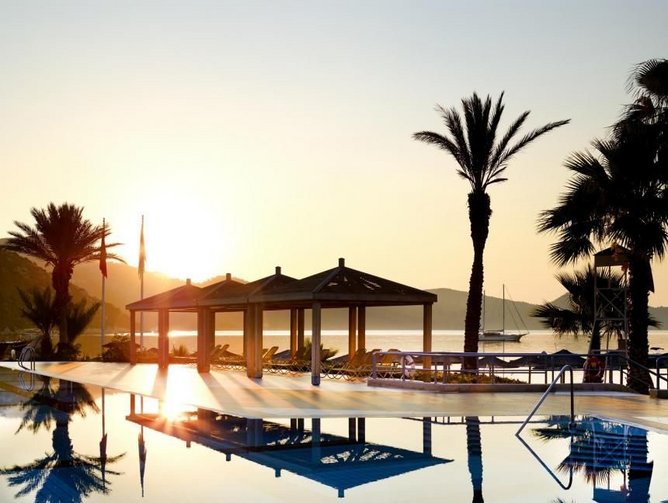How Hapimag’s technology transformation is attracting the digitally enabled generation
In today’s hospitality, travel and tourism industry, the destination is no longer the key differentiator between companies. The modern-day guest has more diverse expectations and demands than ever before and industry players have had to wake up to this shifting customer base, recognising that delivering the best possible guest experience, both in and out of the holiday facility, is proving to be the ultimate competitive advantage in a multi-billion-dollar market. For Hassan Kadbi, CEO at leisure hospitality business Hapimag, the last 20 years have seen most businesses across the industry diversify “dramatically” in order to navigate this shifting customer base. At Hapimag, the key to succeeding across this changing landscape is continuous learning and improvement. “Historically, hospitality, accommodation and tourism were all about good service at a good price,” he says. “But over the years, so many elements have changed the game, and the speed at which this is happening is overwhelming for companies. The challenge then becomes ‘how can you keep up with this, deliver what your customer expects and not lose that customer in the end?’”
Kadbi joined Hapimag back in 2005, having previously worked in senior management positions for Hilton Worldwide across the United Kingdom and Greece. Over the following years, he rose through the ranks of Hapimag, taking responsibility of various resorts across Greece, Turkey and North Africa, finally being in charge of all Hapimag facilities, before taking over the role of CEO in 2016. When appointed as CEO, Kadbi was tasked with one clear vision: to simplify the Hapimag product and make it more attractive to a younger generation of guests through the digitalisation of its business model. His biggest challenge was evolving the company as the industry around it changed, and understanding and responding to those various elements. Kadbi breaks this strategy down into three key areas: destination; the mindset of the modern travelling guest; and, of course, the complexity of digitalisation.
“Competition started with the destination. It was the key selling point. However, looking at the industry today, there are so many players that offer resorts and hotels in the same destination. So the pressure began to pile onto the business itself,” he says. “As for the guest, travelling used to be for business or for a holiday. Today, one of the biggest reasons for travel is the experience surrounding the destination. The younger generation looks for experience before they even consider accommodation. We then have to look at our product offering, factor in this changing landscape and ensure that it scratches that itch. It should also be supported by technology that enables an entirely seamless experience, so they can have that unique experience at the destination.”
Hapimag was founded in 1963 with the idea of providing people who could not afford their own holiday home with the opportunity to spend their holidays in a “place of their own” in various locations around Europe. Fast forward to today and the firm has around 125,000 shareholders and members who can take advantage of stunning holiday experiences across 16 countries. While Hapimag has enjoyed decades of undeniable success, operating for more than half a century has created what Kadbi describes as “something of a closed community” for the company. “By closed community I mean regular customers. All of our customers across our 60 properties are regular customers,” he says. “But our next generation of customers will be younger and have different expectations and demands. We’re now changing what we’ve historically done and transforming as a business in order to attract and retain a younger generation of guests.”
For most companies, digitalisation is the key to attracting the younger customer or guest, but Kadbi is keen to stress that while digitalisation is important, Hapimag doesn’t fall into the trap of overwhelming the customer with digital services. Booking platforms, customer service and online portals are all instrumental in delivering the best customer experience but Kadbi believes that the area of focus should be a little more behind the scenes. “The secret to our success in everything we do is data and what we do with it – everything we know about our customers and their behaviours and engagement with Hapimag,” he says. “The days where the challenge was simply ‘does the place have a Wi-Fi connection and is it free of charge?’ are gone. Now we have to ensure we have the right bandwidth to support the customer’s interests. They want to stream a movie, listen to music or browse on their personal devices. It’s about what we can do to make the customer’s life easier as they use our product unconsciously.”
Hapimag’s shareholder base extends well beyond its 125,000 registered members. As Kadbi notes, their families and friends are also interacting with Hapimag, so the challenge of optimising and simplifying that interaction process is significant as the company looks to deliver the best possible customer experience. He points to Hapimag’s rewards system and how, across the industry, many hotels require guests to use rewards gifted to them by a certain time or they expire. “The bottom line was that 50-60% of those rewards were lost because even though we remind members and shareholders, it’s not the first thing on their mind and they often forget they have them,” he says. “So, we automated our rewards system. Customers spend their money, they earn their rewards and those rewards are automatically placed in their accounts. Just like that. I have always believed that a company should offer a digital rewards system where the customer doesn’t have to do a thing.”
This represents the company’s smart approach to the digital conversation, ensuring that the customer is driving the demand, not the technology. Hapimag looks to invest in technology where there is clear and tangible value to the customer. Wireless technology and connectivity, for example, are crucial to a seamless customer experience and across all of its locations. But what of the biggest technology trends that are defining the global conversation? Where do artificial intelligence (AI) or blockchain fit into Hapimag’s transformation? “Right now, they are irrelevant for us as a direct investment,” says Kadbi. “We are waiting to see what is out there in the market and then we will decide if something like AI or chatbots could bring added value to Hapimag and its customers.” Once again, it’s the customer experience that steers the conversation. “At this point for me, it’s a case of spending €1mn on technology or spending €1mn on putting better mattresses in all of my resorts. I've got a view that the better mattresses will make my customers far happier at this point.”
The key to understanding just how happy the customer is lies with effective communication, and Hapimag goes to great lengths to ensure that its decision making is in line with the customer and not the other way around. It does this through regular questionnaires and surveys that allow Kadbi to ask the questions: “Do our customers like our product? Are they happy? Where could we improve?”
As well as feedback surveys, Hapimag also runs a number of pilot programmes with its customers in order to grow with its community interests in mind and therefore better serve them. A key example of this is the honesty bar concept whereby Hapimag allows guests to enjoy food and beverages within their room at their own leisure. Rather than a member of staff checking and adding an additional cost onto the experience, the guest pays on departure. “They simply enjoy the experience knowing that they don’t have to worry about paying then and there, or waiting for us to place additional costs onto them,” says Kadbi. Within just over two years of starting the initiative, Hapimag now has honesty bars at more than 30% of its locations and has since been expanding this further and creating honesty shops.
To deliver an unrivalled customer experience, Hapimag requires the right people and employees. After all, running a resort or a hotel is a complex process and a key part of what makes Hapimag successful is its company culture. Kadbi notes that it has to start from the top. “We lead by example and this passes down through the company and to the customer,” he says. “We believe that you need to be inclusive of your employees and inclusive of your customers when moving forward.” Kadbi himself writes an internal blog that explores how the company is evolving, as well as an internal note that champions the success of his employees. “Our communication channels now represent empowerment projects for employees,” he says. “It’s part of a cultural change. We want employees to make their own decisions, achieve success and make mistakes. They will learn from this and better understand how they can do more for the customer.”
This culture of communication and empowerment forms a central part of what makes Hapimag truly unique: authenticity in delivering on its promise to provide individual holiday homes and experiences all over the world. Its customer base is changing dramatically, with its future target group being made up of the millennial generation and Kadbi believes that as the customer becomes more digitally enabled and more informed than ever before, the authenticity of Hapimag will stand the test of time. “Millennials are incredibly smart shoppers. They follow a cause more than the older generation, and at the same time they demand authenticity,” he says. “At Hapimag, we are learning, we are improving and we will continue to do that. There's one thing we really do not mess around with and that’s the experience, the authenticity, being a true community.”





